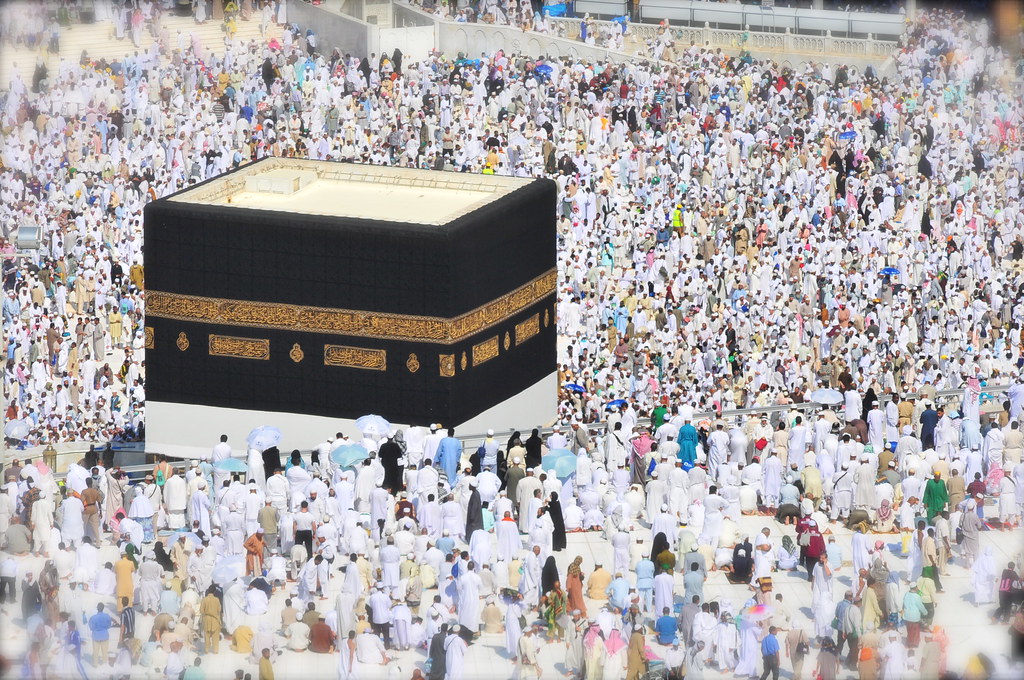As we know, every Muslim aspires to make a wonderful pilgrimage to Mecca. This spiritual journey is also known as Hajj. It is one of the five pillars and religious obligations of Islam. This holy pilgrimage is a collection of several rituals. Furthermore, it has great significance and numerous interesting facts. In this scenario, study the following topic: “What is the most important thing in Hajj?”
Hajj is an annual and mandatory religious journey to Mecca, which is considered to be the holiest city for Muslims. Every physically and financially capable Muslim must perform this sacred trip at least once in his lifetime by booking theu.
One of the most significant days and things in the Islamic calendar, and not just for the Hajj, is the Day of Arafah. The Prophet Muhammad (PBUH) delivered his final sermon on Mount Mercy in Arafat. Pilgrims travel nearly 14 kilometres from Mina, where they spend the day in pious prayer.
The Day of Arafah – Most important thing in Hajj
Millions of Muslims from around the world visit Mecca each year to perform the Hajj. The Islamic pilgrimage follows the actions of the last Messenger Muhammad (PBUH) 1400 years ago.
Hajj takes place in the last month of the Islamic calendar, from the 8th to the 13th of Dhul Hijjah. The Day of Arafah is the most important of the many significant things and rituals associated with this religious pilgrimage.
Pilgrims arrive in Arafat, a barren region nearly 20 kilometres east of Mecca, before noon on the 9th of Dhul Hijjah. They maintain a reverent vigil, seek forgiveness for their past transgressions, and listen to the sermon delivered by Islamic scholars from close to Mount Arafat. According to Islamic traditions, the Prophet Muhammad (PBUH) addressed his last sermon on this mountain.
One of the significant rituals of Hajj is called Wuquf (“Standing before God”), and it lasts from noon to sunset. At Masjid Namirah, pilgrims perform both the noon and afternoon prayers together. If a pilgrim does not spend the afternoon in Arafat, his pilgrimage is null and void.
Significance of Hajj
Muslims travel to Mecca and Medina to purify their souls, seek forgiveness, and be closer to Allah, the Almighty.
In addition to being an obligatory religious duty, Muslims believe that performing Hajj has spiritual rewards that enable them to renew themselves. This holy journey serves as a reminder of the Day of Judgment when Muslims believe that people will stand before God. Regardless of their ethnicity, culture, or colour, Muslims from all across the world come together for Hajj, which serves as a symbol of equality.
Interesting Facts about the Hajj
There are numerous interesting and amazing facts about the Islamic annual pilgrimage. These are the following:
- It is the fifth pillar of Islam
- It is more than 1400 years old
- The world’s largest religious gathering
- A profitable industry for the Saudi government
It is the fifth pillar of Islam
The five pillars of Islam are obligations that every faithful Muslim must fulfill to live his life sincerely and put his faith first. Every physically and financially stable Muslim is required to perform Hajj at least once in his lifetime because it is the 5th pillar of Islam.
It is more than 1400 years old
Hajj has a much more ancient history than the period of the Prophet Muhammad (PBUH). The events of this pilgrimage date back to 2000 BCE.
This religious duty is considerably older if we consider the rituals involved, which include walking between Safa and Marwa to represent Hajar’s journey in search of water.
The world’s largest religious gathering
It is estimated that around 2 million Muslims visit the Grand Mosque in Mecca to perform Hajj every year. Muslims travel to Mecca for six days at the beginning of the final month of the Islamic calendar, Dhul Hijjah. It is considered one of the biggest human gatherings.
A profitable industry for the Saudi government
Hajj is one of the sectors in which the Saudi government generates tremendous revenue. The Hajj season produces billions of dollars for Saudi Arabian markets.
Conclusion
The Hajj is an annual religious trip to Mecca. For Muslims, it serves as a symbol of equality, brotherhood, and altruism. This sacred pilgrimage has great significance and many interesting facts.
The Day of Arafah is among the most important things and days in the Islamic calendar, not just for the Hajj. The Prophet Muhammad (PBUH) delivered his last sermon on Mount Arafat. Pilgrims travel 14 kilometres from Mina to this site, where they pray reverently all day.


